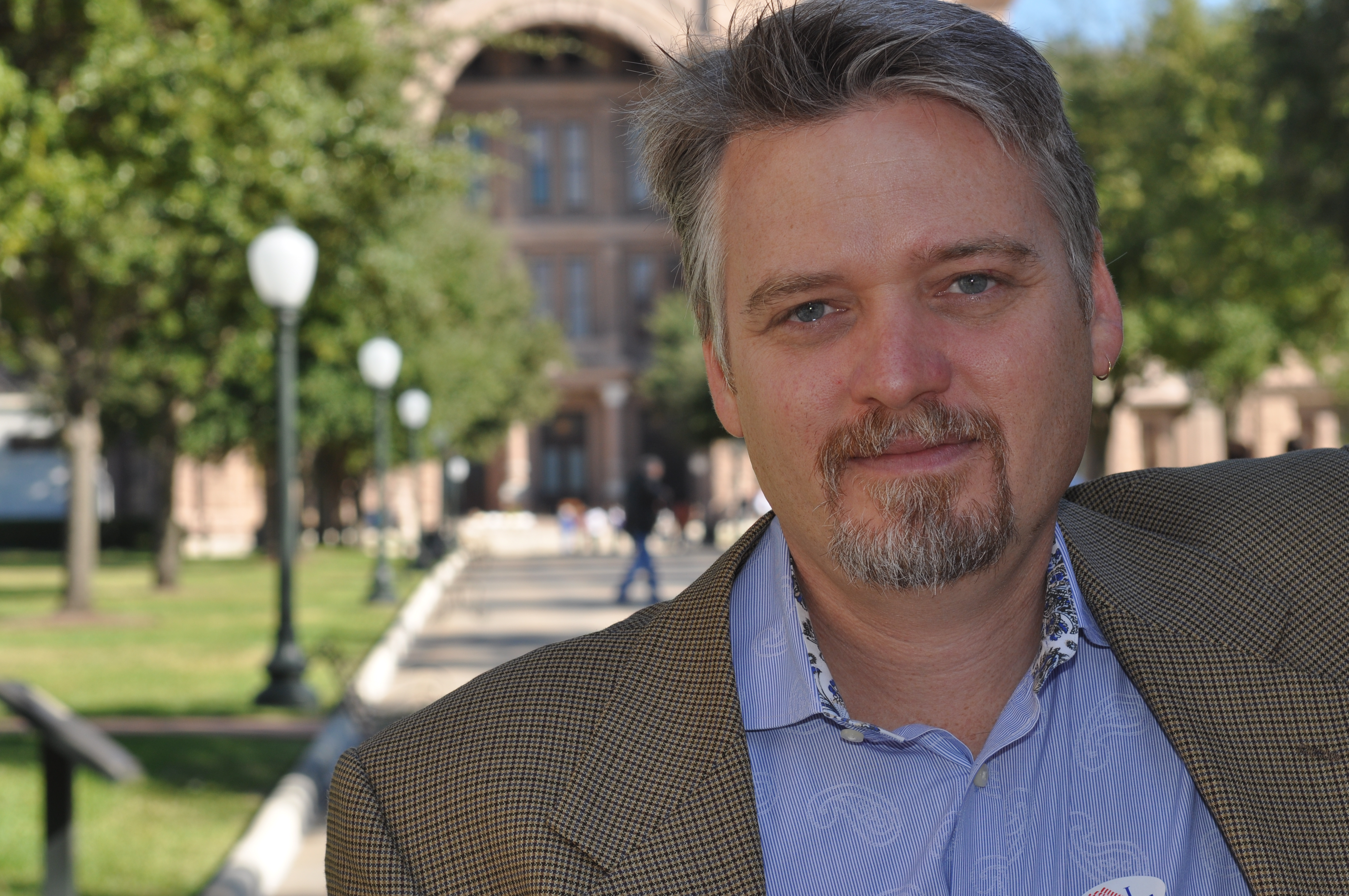Award-winning Documentary about the Historic Racial Divide in a Small Texas Town Will Be Screened at Baylor Sept. 30

AP journalist Chris Tomlinson
(Courtesy photo)
Follow us on Twitter:@BaylorUMediaCom
Contact: Terry Goodrich,(254) 710-3321
WACO, Texas (Sept. 25, 2013) -- Tomlinson Hill, an award-winning documentary about the history and racial divide in the small Texas town of Marlin, will be screened at Baylor University on Monday, Sept. 30, with a discussion to follow.
The free event, hosted by the Institute for Oral History, will be held at 6:30 p.m. at Marrs McLean Science Building, Room 101, 1214 S. Fourth St.
The film, which has aired on PBS, won the Silver Heart Award at the Dallas International Film Festival this year.
In the documentary, Associated Press journalist Chris Tomlinson -- who is white and a descendant of slave holders -- confronts his own history and guilt and explores a legacy that continues to affect the town's residents. Tomlinson will be at the screening to discuss his experiences.
"It is a story both deeply personal and communal," said Stephen Sloan, director of the Institute for Oral History. "The film shows the long reach of forces and issues we often dismiss as belonging to the past."
Tomlinson Hill was a Texas slave plantation, and out of it grew the small town of Marlin, with a population of about 6,000.
In the 1910s and 1920s, Marlin became a tourist attraction because of its natural hot springs, believed to be a cure-all. For many years, Marlin's economy was geared toward the health industry, but that changed over time with more modern treatments. When the town was desegregated in 1965, many white residents left or moved to the outskirts.
Today, the town continues to struggle economically and with racial differences. The film tracks Tomlinson's meeting with Loreane Tomlinson, a black resident of Marlin and mother of former NFL running back LaDainian Tomlinson. She is committed to finding community-based solutions to preserve and integrate the town's history.
Chris Tomlinson grew up hearing from his grandfather that their family's slaves were well treated, and some of his ancestors' former slaves took the family name. His goal was to tell the story from both perspectives. The film includes interviews with residents, historians, students and city officials.
Filmmaker Lisa Kaselak, an assistant professor of film and media arts at Southern Methodist University, worked with Tomlinson to make the film, and Baylor's Institute for Oral History advised on ways to enhance and archive the project. The full interviews done for the film are deposited at the Institute.
Co-sponsors of the screening are Baylor's department of student activities, department of multicultural affairs and the department of journalism, public relations and new media.
To contact the Institute, call (254) 710-3437.
ABOUT BAYLOR UNIVERSITY
Baylor University is a private Christian university and a nationally ranked research institution, characterized as having "high research activity" by the Carnegie Foundation for the Advancement of Teaching. The university provides a vibrant campus community for approximately 15,000 students by blending interdisciplinary research with an international reputation for educational excellence and a faculty commitment to teaching and scholarship. Chartered in 1845 by the Republic of Texas through the efforts of Baptist pioneers, Baylor is the oldest continually operating university in Texas. Located in Waco, Baylor welcomes students from all 50 states and more than 80 countries to study a broad range of degrees among its 11 nationally recognized academic divisions. Baylor sponsors 19 varsity athletic teams and is a founding member of the Big 12 Conference.
ABOUT THE INSTITUTE FOR ORAL HISTORY
The Institute for Oral History creates oral history memoirs by preserving a sound recording and transcript of interviews with individuals who are eyewitnesses to history. Its mission is to document memories representing the diversity of American society and encompassing varied topics of social and historical significance. The Institute encourages oral history scholarship through fellowships, graduate assistantships and training workshops, and it shares the outcomes of our oral history research through publications and public programming.